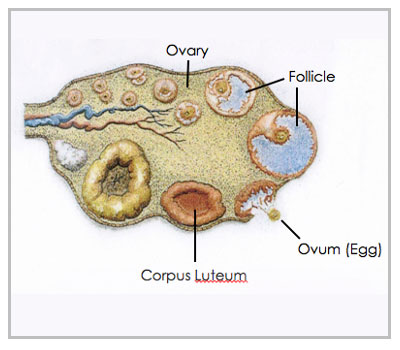If you are having problems in trying to conceive or have suffered from repeated (2 or more than 2) miscarriages you could be suffering from a condition known as Luteal Phase Defect (LPD). Hear from our infertility specialist doctor in Delhi. Luteal Phase Defect is still a controversial condition in medical parlance and the reason behind it is there is no reliable test that can prove or refute its existence. Even so, it is widely believed that Luteal Phase Defect does exist in at least some patients and it can also lead to menstrual irregularities apart from Infertility.

Luteal phase is the phase of the menstrual cycle between ovulation and the onset of menstrual bleeding. This is an important phase of the cycle because fertilisation and embryo implantation happens during this phase. The key hormone that makes this possible is called Progesterone and it is secreted by the Corpus Luteum in the ovary. Corpus Luteum is nothing but the transformation of the follicle that has ruptured into a conglomeration of Progesterone secreting cells. So when the luteal phase is insufficient it is apparent that the implanting embryo will not receive sufficient nutrition for it to grow in the womb, leading to failed implantation or early miscarriage.
Luteal phase defect can occur when either of these happen -
It is possible that your periods are shortened as the luteal phase of normal 14 days duration is now curtailed to less than that. Additionally you may have one or more of following:
However infertility (difficulty in getting pregnant) is the most common and only symptom.
In medical parlance this is still in controversial territory because the test results are not conclusive. Conventionally the diagnosis of LPD used to be done with endometrial biopsy wherein a small sample of the endometrium is sent for dating histologically. Nowadays serum progesterone is done one week after presumed ovulation. None of these tests are conclusive and therefore the diagnosis of LPD remains elusive.
Typically suspected patients of LPD are given fertility medications only as it is thought that the growth of better quality follicles will circumvent the early corpus luteal demise and lead to a pregnancy. If still however a patient does not conceive with ovulation induction treatment then assisted conception in the form of IUI or IVF may be necessary.
If you like to have more information, let us connect. Please fill in the form below to learn about your Fertility status or scheduling an appointment with us.
